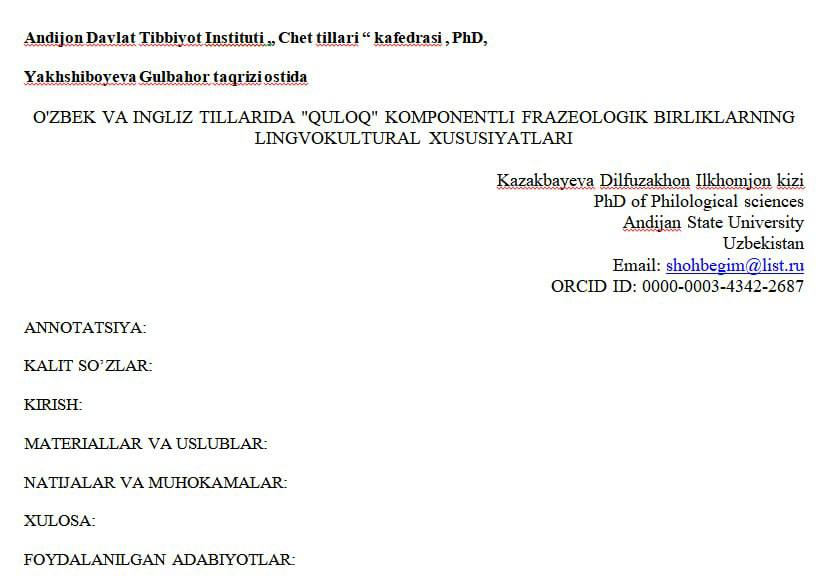LINGUISTIC APPROACHES TO STUDYING AGGRESSION
Keywords:
Aggression, linguistics, discourse analysis, pragmatics, corpus linguistics, speech acts, politeness strategies, lexical choices.Abstract
The purpose of this article is to analyze multilateral essence of aggression via linguistic perspectives. Discourse analysis, pragmatics , and corpus linguistics are being the main approaches of linguistics shall provide thorough comprehension of how aggression is expressed, perceived, and interpreted in language. By investigating linguistic features, such as speech acts, politeness strategies , and lexical choices , this study will supply valuable data how aggression is manifested in communication. In addition, the deeper understanding of aggression nature will be presented through relevant literature and analysis of theoretical data.
References
Brown, P., & Levinson, S. C. (1987). Politeness: Some universals in language usage. Cambridge University Press.
Culpeper, J. (1996). Towards an anatomy of impoliteness. Journal of Pragmatics, 25(3), 349-365.
Erlinda, R.(2016).Introduction to English Pragmatics: Applying Research-Based Learning Model. Jurnal Pendidikan Bahasa Inggris IKIP Siliwangi, vol. 5, no. 1, pp. 1-10.
Kamalu, I & Osisanwo , A (2020). Discourse analysis, ResearchGate, 28, 2-7
Sotvoldiyevna, U. D. (2022). Political Euphemisms in English and Uzbek Languages (A Comparative Analysis). Eurasian Journal of Learning and Academic Teaching, 9, 92-96.
Taylor S.,(2013) . What is Discourse Analysis?. The Bloomsbury Companion to Discourse Analysis. Edited by Paul Baker and Elizabeth A. Bell, Bloomsbury Academic, 2013, pp. 1-10.
Uzakova, L., & Usmonova, D. (2021). Comparative Study of Uzbek and English Speech Etiquette. Pindus Journal of Culture, Literature, and ELT, 1(12), 60-63.
Yule, G.(1996) Pragmatics. Oxford University Press , pp 3-66
https://dictionary.cambridge.org/dictionary/english/aggression Retrieved on April 21,2024














